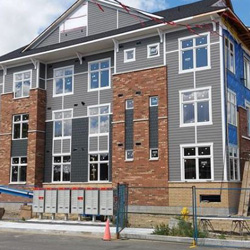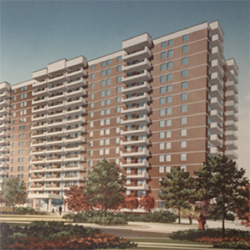Your enforcement plan will likely depend on your tenant(s) and their behaviour, whether or not there is damage to the unit, and whether or not you live in the building too.
If there is evidence of smoking in violation of a no-smoking policy, you can do any of the following:
- Speak with the tenant and review the no-smoking policy and their responsibilities,
- Provide a written letter to the tenant indicating the details of the violation and any discussions you have had with the tenant on the subject,
- Document all violations and witnesses to the violations,
- Write a warning letterbefore serving the tenant a Notice to Terminate a Tenancy Early N5 form
- Complete a ‘Notice to Terminate a Tenancy Early’ form that serves as an eviction warning
- Conduct regular inspections with proper notice, and
- Actively address complaints.
In Ontario, a smoking violation of a no-smoking policy is not considered a material breach of the lease. You could enforce your policy for one of the following reasons:
- Damage—The tenant, the tenant’s guest or another occupant of the rental unit willfully or negligently damaged the rental unit or the residential complex as per section 62(1) of the Act (Form N5).
- Damage—The tenant, the tenant’s guest or another occupant of the rental unit willfully damaged the rental unit or the residential complex as per section 63(1a) of the Act (Form N7).
- Reasonable enjoyment—The tenant, the tenant’s guest or another occupant of the rental unit substantially interfered with the reasonable enjoyment of the residential complex by the landlord or another tenant, or substantially interfered with another lawful right, privilege or interest of the landlord or another tenant as per section 64(1) of the Act (Form N5).
- Reasonable enjoyment of landlord in a small building (landlord must reside in a building containing not more than three residential units)–The tenant, the tenant’s guest or another occupant of the rental unit substantially interfered with the reasonable enjoyment of the building by the landlord, or substantially interfered with another lawful right, privilege or interest of the landlord as per section 65(1) of the Act (Form N7).
In past cases at the Landlord and Tenant Board, adjudicators have accepted evidence of log books detailing the dates and times that second-hand smoke came from another unit and testimony from third parties confirming the smell of second-hand smoke and its impact on health and well-being.
A tenant whose smoking substantially interferes in the reasonable enjoyment by another tenant may expose the landlord to liability. The landlord could consider several options including moving tenants or breaking leases, and as a last resort apply to the LTB to proceed with an eviction to mitigate liability (section 64(1) of the Residential Tenancies Act, 2006).






